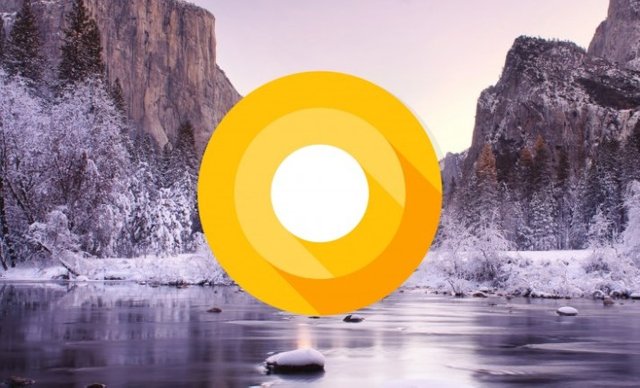ANDROID 8.0 OREO REVIEW: THE LITTLE THINGS

INTRODUCTION
Twelve months have passed since the introduction of Android 7.0 Nougat, and you know what that means – a new, even sweeter release of Google’s mobile operating system is out. With Oreo we’re treated to the second ever co-branding exercise for an Android version, following in the footsteps of KitKat from a few years ago. While it may have been officially revealed during a rare event (the total solar eclipse on August 21), Oreo doesn’t come with huge changes compared to its predecessor – at least not any that are immediately obvious to the user.
Underneath the just slightly tweaked UI elements, however, sits Project Treble – which is basically a revolution in the way the OS is built, and may result in longer software support windows than what we’ve gotten used to from Android device makers. Then again, promises of faster updates have burned us before, so we’re a bit wary of believing update-related claims before we actually see any of them becoming reality.

Android 8.0 Oreo review
As usual with reviews of big new Android releases, what we’re talking about here is the unadulterated Oreo experience that’s currently available for Google’s Pixels and Nexuses. These have all started to receive updates to the new version, and 2017’s Pixels will run the new OS from day one.
If the smartphone you own isn’t a Pixel or Nexus, then some (or many) of the aesthetic changes introduced in Oreo may not make it to your particular handset or tablet, because they could get lost in its manufacturer’s need to skin things one way or another. Furthermore, you’re going to have to wait, and we’re talking months here, for Oreo to reach you. This is how things have always been in the Android world, and at this point we’ve given up hope that any of this will ever change. So if you want to be among the first to receive new OS versions as they come out of Google’s oven, you need to buy a Pixel.
KEY UPGRADES OVER NOUGAT
Picture-in-Picture mode for videos (and even maps), which can run in a small, moveable window on top of anything else;
Completely reorganized Settings menu, with the aim of making the various options much easier for novices and average users to navigate (although this may result in certain frustrations for power users);
Twice faster boot times;
Background execution and location limits keep rogue apps in check, not allowing them to drain your battery by running, using data, or constantly asking for your location when they’re not in the foreground;
Notification categories give you more granular control over what you see from each app;
Notification snoozing is very welcome;
Dots introduce a new way to manage notifications;
Autofill framework lets third party services (as well as Google itself) remember your logins for apps and seamlessly offer to fill them in when needed;
Project Treble is the biggest ever change to the foundations of Android – a modular architecture that in theory should make it easier and faster for device makers to deliver software updates for longer;
Redesigned Ambient screen shows notifications with larger font, highlighting the name of the app generating each one, and giving you immediate access to quick actions;
Fully redesigned emoji lose the controversial ‘blob’ design for a look that’s more similar to those designed by other companies in the mobile space;
Smart text selection automatically recognizes phone numbers, addresses, and links, and lets you quickly act upon them.
WHAT WE’RE STILL MISSING
A dark theme, which is especially baffling given Google’s love of OLED panels for its devices (which would save power when paired with a dark or black UI);
A theming engine while we’re on this subject – personalization is something a lot of people like about Android, but there’s just one Google-imposed stock look and you have to live with it if you want a Pixel;
A way to customize the navigation bar buttons – they are software-rendered, so the ability to move them around to one’s liking, or add more buttons to the bar, or remove some, or even choose between a few different designs should be very easy to implement but Google is still resisting;
A way to customize the lock screen shortcuts;
A redesign of the Google Now Feed, which is accessed by swiping right from the leftmost home screen in the Pixel Launcher; Google has been experimenting with a new look for this part of the UI (that’s getting really stale), but it’s still not rolled out globally;
Google Lens – announced at the I/O conference earlier this year, it will probably arrive on the next-gen Pixels first; it’s going to let your camera ‘understand’ what it’s looking at, leveraging Google’s computer vision and artificial intelligence tech.
You may be among the lucky few who own a phone or tablet that’s already received its update to Android 8.0 Oreo. Or you could be anxiously waiting for your device’s manufacturer to deliver this OS version to you. In either case, you’re welcome to join us in the following pages where we shall perform an in-depth exploration of what you can expect to get from Google’s latest tasty treat.
Hi! I am a robot. I just upvoted you! I found similar content that readers might be interested in:
http://www.gsmarena.com/android_80_oreo-review-1653.php
Upvoted by @andravasko , upvoted community helps minnow steemit . explanation HERE !!!